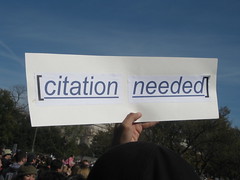 |
| Beao. "Essay" 1/27/10 via Wikimedia. CC Attribution Share Alike. |
For my work on a controversy postmortem, regarding space exploration and its debate between privately funding companies such as SpaceX to fly to the ISS, or NASA to continue working alone, I am going to use the familiar essay format.
During the week ahead that I have to prepare for the production of my project, I have to develop a working text, or a draft copy of my essay. This will require lots of research finding specific, detailed points to use in a variety of paragraphs, good reputable quotes from sources, along with data to back them up. Using these conventions, of presenting evidence and then analyzing them will allow me to thoroughly explain some the nuances in the relationship between key points and the stakeholders on each side, which can become confusing within this topic. The purpose of this project is give a clear narrative of what happened in the controversy, and one of the best ways to do this is through explanation and analysis of the facts and points being thrown around. Compared to other genres, such as the podcast or video essay, this genre will allow for more analysis instead of discussion on the facts presents, while it will go more in depth than the quick reference guide.
I am feeling confident that the genre I have picked will work well with the project, and I am already confident in that genre, and I do enjoy the debate between private and public funding for space flight, so I believe as long as I stay on top of time management and work ahead, the production phase of the project will go as planned. Some challenges I see coming are procrastination and other commitments keeping me from starting early enough on the production, and also insuring that I am pulling accurate and worthwhile sources for my project, as many in this field are opinion based instead of hard facts.







